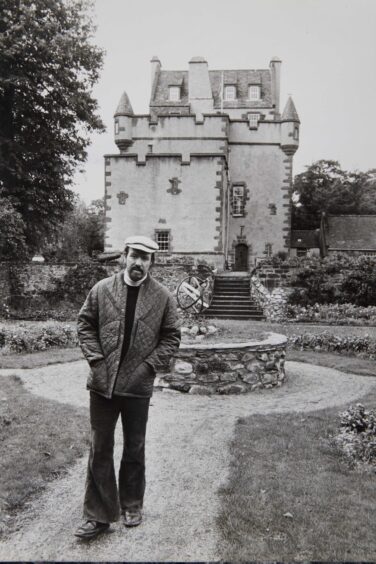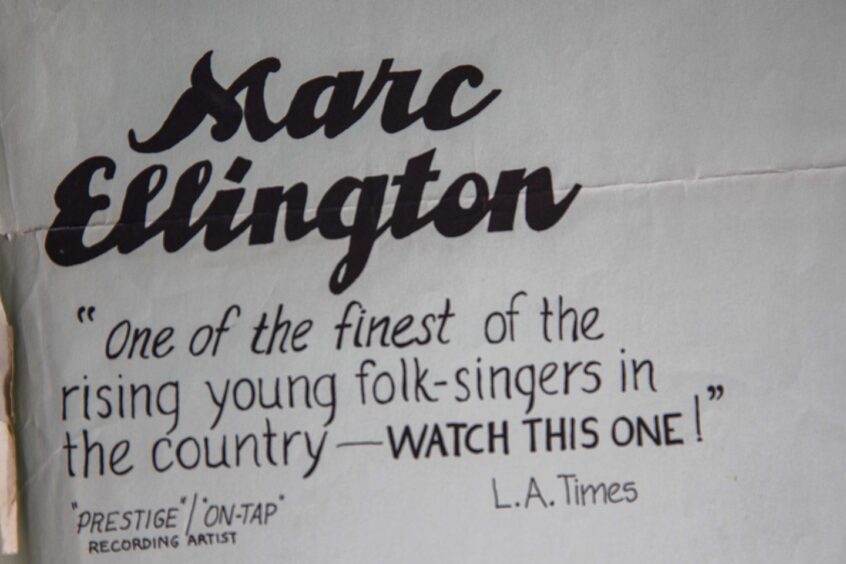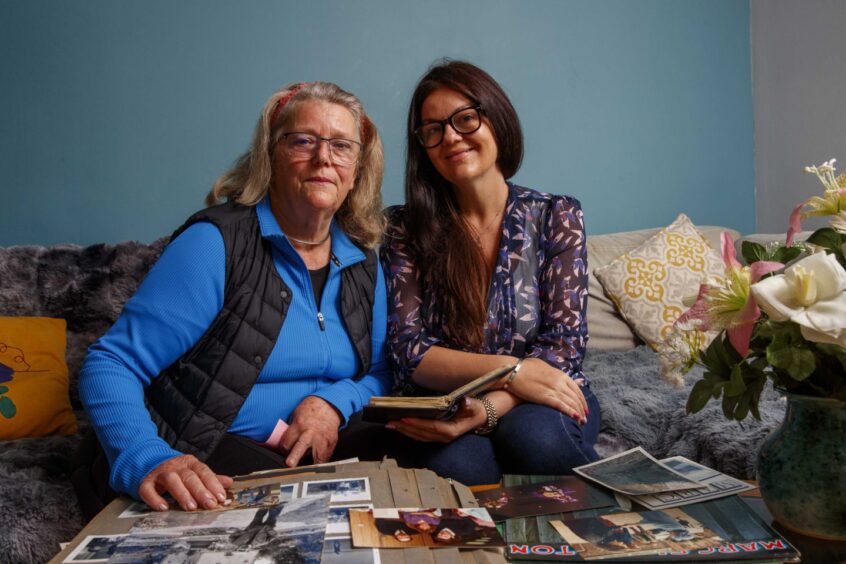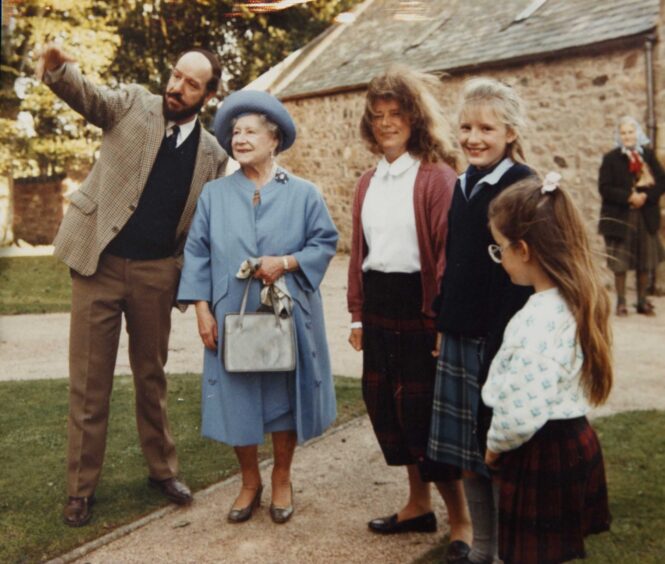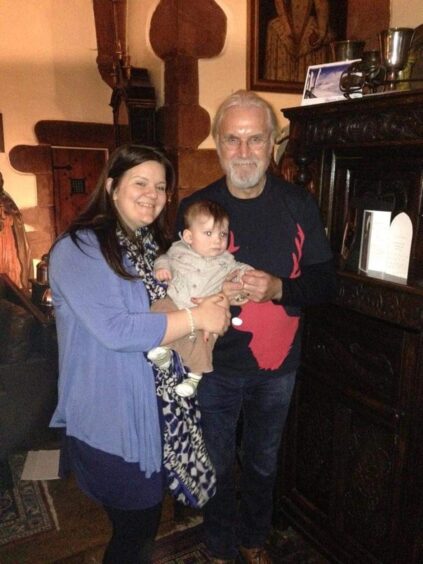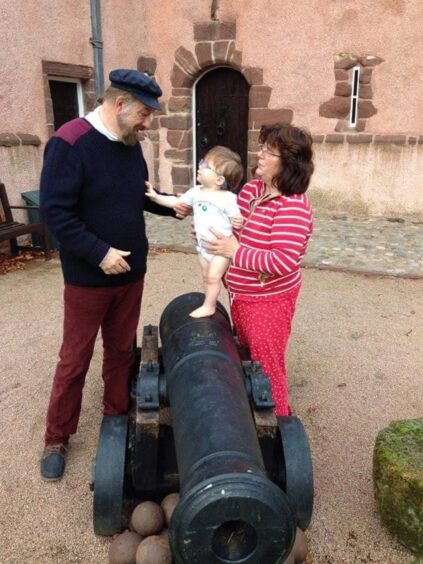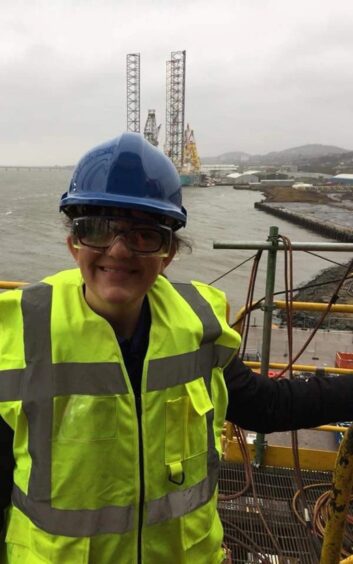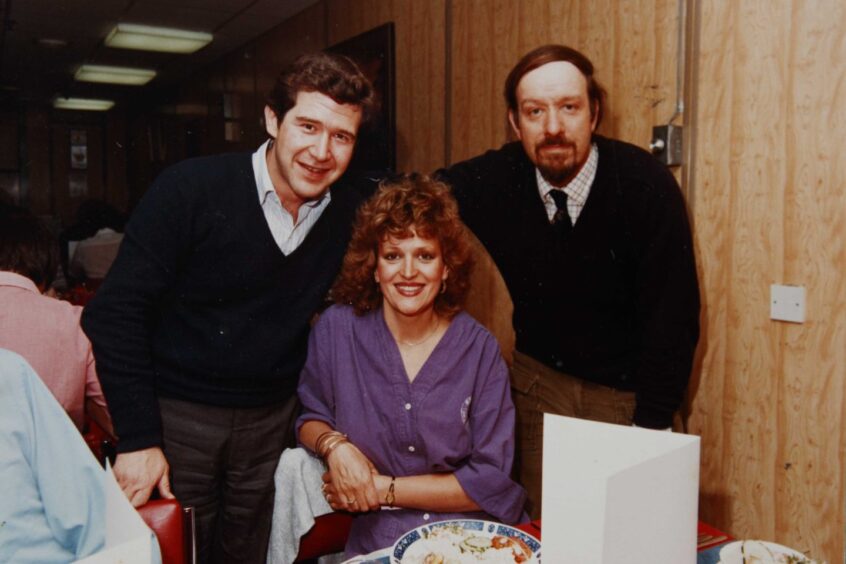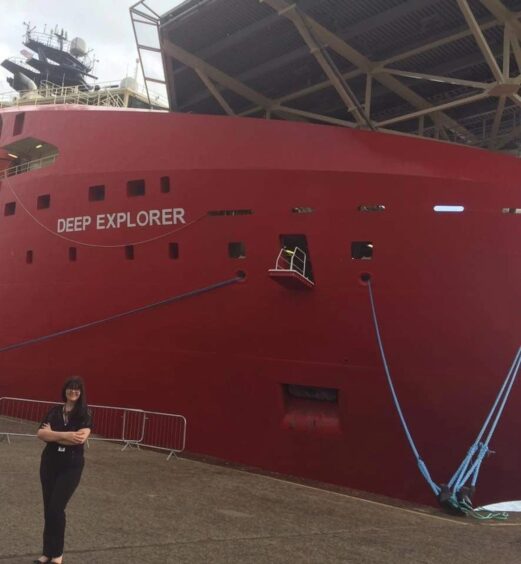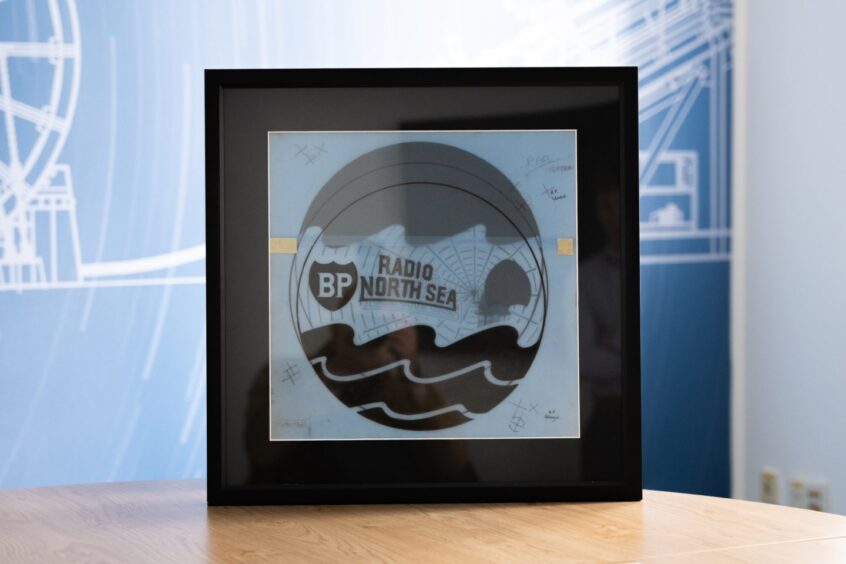 © Supplied by True North
© Supplied by True North Google Marc Ellington and you’ll be met with a cacophony of pictures and articles of a grinning American folk singer, a friendship with (then) Prince Charles, and the saving and restoration of a 400-year-old castle in Aberdeenshire.
What connects these seemingly disparate elements? Aside from the late Ellington’s huge character, it’s a love of North East Scotland and an unlikely yet lucrative career with the (then) burgeoning energy industry.
That connection to the sector helped enable Massachusetts-born Marc’s 50-year love affair with the north-east across energy, the arts, history and tourism, as well as establish a multi-generational link to the industry through his family.
So ingrained did he become that he eventually started showing celebrities around offshore platforms, including Terry Wogan and Noel Edmonds, which soon led to his wife Karen becoming one of the first women to go offshore in the 1970s.
Articles and obituaries following his passing in 2021 captured the sweep of Marc’s life. However, perhaps less visible is his role in the energy sector, creating BP North Sea Radio in the late 70s at Towie Barclay, the 16th century seat of the Barclay clan near Turriff, which he and Karen bought and restored in the early 70s.
Speaking to Karen and their daughter Kirstie, the deeper you go the more you sense you have only scratched the surface of his life.
His peaceful protest against the Vietnam draft and introducing Karen to Johnny Cash during their ‘wedding reception’ (in truth, a Phillips record label party in London, which took place on the day of their wedding at Southwark Cathedral) are among the stories to bubble up as they go through the family photo albums – not to mention glittering reviews of his music career in the LA Times, and holidaying with Prince Charles in rural Romania.
Some of that precedes Marc’s work across the northeast: on the board of groups including Grampian Enterprise and Historic Building Council, among others, with his work ranging from commemorating Cabrach men lost in WWI to establishing the Scottish Traditional Skills Training Centre to commentating on the Portsoy Boat Festival.
He became an ambassador for the region.
‘It was our bread and butter’
“We just fell in love with the whole place,” Karen said when asked why they decided to come to Scotland, noting their initial three-month trip in 1967 and meeting Billy Connolly on the folk club circuit.
The Towie Barclay restoration followed, managed by Karen using proceeds from Marc’s music career, going on to win a Saltire Society Award (later, Marc was awarded an honorary doctorate from the University of Aberdeen for his services to conservation). The Queen Mother, the Big Yin and the King are among those who have since sat around the kitchen table there.
Buying the castle came at an opportune time.
“We kind of went into shock when we realised that the oil had been discovered in the North Sea,” said Karen. “We opened up the newspaper the day we bought the castle, and it said ‘Oil Discovered in the North Sea’ and we thought, ‘Oh my God, the area is going to be ruined. Now what have we done?’ Actually, it was anything but.”
The Ellingtons, like much of North East Scotland, soon saw the opportunity the energy sector presented – so they got stuck in.
First, BP supported some of their work around the region, including Heritage Press, which produced books on historic sites around Aberdeen and Shire, and Soundcraft – audio guides to the same.
That door open, Marc and Karen offered their services in videography to the supermajor, which led to Marc recording safety training videos such as lifeboat launch and rescue at sea, bolstering the Ellingtons’ wider consultancy business.
The sweep of BP work was “extremely important to us,” said Karen. “It was our bread and butter. You could say it allowed us the freedom of being at home, starting a family and doing more projects.”
BP Radio from Towie Barclay
Kirstie recalled: “Dad was a real visionary when it came to understanding key issues facing energy businesses, with groundbreaking work on the relationship between culture, relationships and communication in the workplace onshore and safety management offshore – this was really early days and BP were real trailblazers.”
Karen added: “I think the biggest project we ever did for them was the ongoing making of the radio programs. In house for BP, we did 450 weekly radio programs. We were there for quite a while!”
Not broadcasting from offshore Forties Alpha, BP North Sea Radio was in fact recorded from a specialised booth inside Towie Barclay.
“It started in the late 70s and was weekly for ten years,” said Karen. “It comprised things like celebrating the birthday of someone stuck offshore and unable to home; music requests; interviews with people from the industry on new legislation or safety items.”
Women offshore for the first time
Through that time, Marc and Karen’s working relationship with BP deepened – and took them to the coalface.
Karen said: “My husband had been offshore many times and had taken visiting celebrities out, like Terry Wogan and various other household names.
“I was the first [woman] to stay overnight offshore in the North Sea. Ted Roberts (the Offshore Installation Manager) was very keen for Forties Alpha to be the first to do that, because he’d been the first at loads of other things with the first North Sea platform BP had that was operational.
“I didn’t think twice about it till I got home, and the phone rang off the wall because the word got out and all the newspapers were ringing me up to ask me what it was like.”
Kirstie, a director at engineering and project delivery firm PDi, argues the industry has come a long way in the 50 years since her mum’s trip offshore – but still has “a ways to go” on diversity and inclusion.
A “transformative” early work experience job at school with an operator led to her career in energy – an experience she wants to pay forward with her own work in the Girls in Energy Programme with Shell.
“These programmes are so important, where young women are given the chance to meet women who’ve had a great career in energy – it is kind of a seeing-it-to-be-it type thing.”
North Sea legacy
Marc’s career took him in different directions from energy, though the sector remained an important piece of his life – particularly in support of his charitable fundraising dinners and other events. He would also go on to become an advocate of nuclear and a “real believer” in new energies.
That link to the sector continues through his daughters Kirstie and Iona, the former a director at PDi while Iona has worked at Emerson for a number of years, with involvement in their D&I and CSR programmes.
“As a headstrong teenager I was determined to make my own way under my own steam, without relying on Dad’s contacts or success. And that’s what I did!” Kirstie proudly exclaims of her role in the sector, brought on by that formative work experience session with BP’s environmental team.
Championing the sector
Today, against a degree of vilification of the industry in recent years, Kirstie hastens to highlight its ongoing role for the world and North East Scotland – both for the economy and the transition to new energies.
“I’ve never worked for an operator or a producer, I have no direct affiliation with them. But, going from a 15-year-old girl on work experience to now – a mother of three – as a director in an engineering consultancy, it’s clear these majors have created opportunities for my family, and hundreds of thousands of other people, to have amazing career journeys and gainful employment while providing for our energy security.
“Our company in Aberdeen employs about 100 people and is looking to multiply this several times over in the next four years alone. We are very proud of our part in this world-class UK energy sector, which safely and environmentally sensitively powers the lives of millions.”
